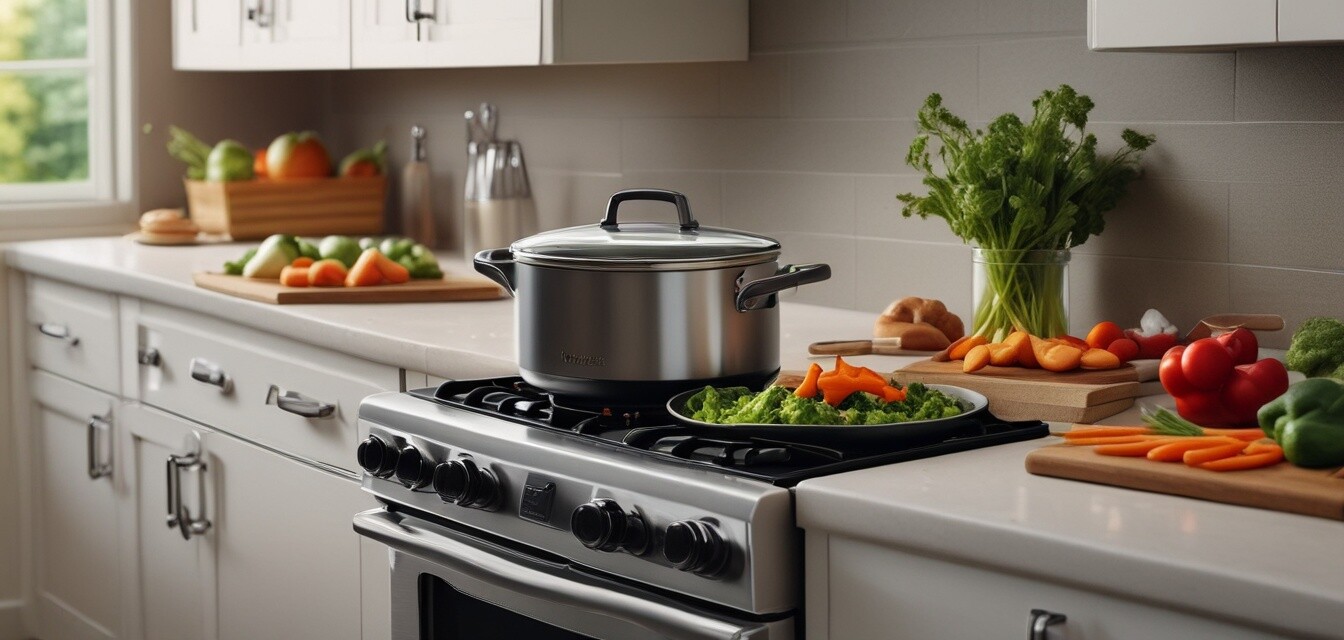
Energy Efficient Cooking Techniques for Busy Families
- Choose energy-efficient appliances for cooking.
- Utilize batch cooking to save time and energy.
- Incorporate simple cooking methods, such as steaming and slow cooking.
- Plan meals ahead to optimize cooking times.
- Understand the importance of using the right cookware.
In today's fast-paced world, busy families often struggle to find the time to cook delicious meals while being conscious of energy consumption. By employing effective energy-efficient cooking techniques, you can not only streamline your kitchen time but also save on your energy bills. In this article, we will explore various methods and approaches to make your cooking more efficient without sacrificing quality or taste.
Choosing Energy-Efficient Appliances
Investing in energy-efficient appliances can significantly reduce energy consumption in your kitchen. When shopping for new cooking appliances, look for those that have the ENERGY STAR label. These appliances are designed to use less energy compared to standard models. Some critical appliances to consider include:
- Induction cooktops, which use electromagnetic energy to heat pots and pans directly.
- Microwave ovens, known for their quick cooking times and energy efficiency.
- Slow cookers and pressure cookers, which save energy by cooking food over an extended period or under high pressure.
Batch Cooking: A Time-Saving Solution
Batch cooking is a fantastic option for busy families looking to save both time and energy. By preparing meals in larger quantities, you can reduce the number of times you need to use your stove or oven, thus conserving energy. Here are some batch cooking tips:
- Plan a weekly menu and shop for all the ingredients at once.
- Cook multiple meals in one cooking session and store them in portioned containers.
- Freeze leftovers to enjoy later, reducing food waste.
Efficient Cooking Methods
Using efficient cooking methods can also help you save both energy and time. Here are a few techniques to consider:
| Cooking Method | Description | Energy Efficiency |
|---|---|---|
| Steaming | Retains nutrients by cooking food without submerging it in water. | Low energy consumption due to quick cooking time. |
| Slow Cooking | Cooks food over several hours at low temperatures. | Great for partially cooking meals while using minimal energy. |
| Pressure Cooking | Cooks meals quickly by trapping steam and increasing pressure. | Uses much less energy than conventional methods. |
| Microwave Cooking | Cooks food quickly using microwave radiation. | Highly energy-efficient compared to traditional ovens. |
Meal Planning Tips
Effective meal planning is key to maximizing energy efficiency in the kitchen. Here are some strategies to help you be more organized:
- Designate one day a week exclusively for meal prep.
- Keep a running grocery list of items you frequently use.
- Organize your recipes, grouping similar ingredients together for convenience.
- Involve the family in planning to ensure everyone looks forward to the meals.
Choosing the Right Cookware
The type of cookware you use can also affect energy efficiency in the kitchen. Here are some helpful tips:
- Use flat-bottomed pots and pans for better heat distribution.
- Select lighter-colored cookware, as it reflects heat better.
- Match the cookware size to the burner size to avoid heat loss.
Conclusion
By implementing these energy-efficient cooking techniques, busy families can enjoy delicious meals while being mindful of their energy usage. Investing in energy-efficient appliances, practicing batch cooking, utilizing efficient cooking methods, and conducting effective meal planning will not only save time but will also contribute to a greener environment. To dive deeper into energy efficiency, check our related articles on tips and how-to articles or browse our air conditioners and refrigerators for further energy-saving solutions.
Pros
- Saves time for busy families.
- Reduces energy bills significantly.
- Keeps the kitchen comfortable with minimal heat.
Cons
- May require investment in new appliances.
- Initial setup time for meal planning and batch cooking.
